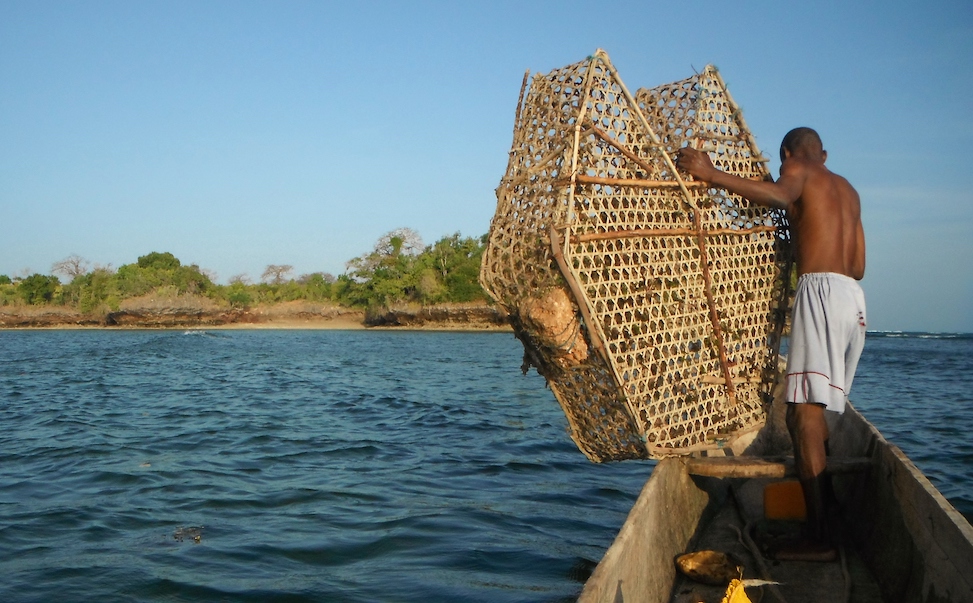
Southern Kenya’s coral reefs and associated ecosystems support high biological diversity that sustains coastal communities. These reefs occur in one of three climate refugia identified in the Western Indian Ocean. The local communities are often poor and marginalized, and susceptible to social-ecological poverty traps. Seafood consumption is essential to community health through the provision of protein and critical micronutrients. However, high seafood production and sustainability is threatened by excessive fishing effort and climate impacts. Unsustainable behaviors include the common use of destructive fishing gears, such as beach seines and small-mesh nets. Climate and sedimentation stresses further threaten the productivity that these communities depend on. In addition, the national and regional ambitions of the Blue Economy are growing and placing greater emphasis on marine production and coastal development, which has the potential to further undermine the ability of the poor to access and benefit from sustainable fisheries-based livelihoods.
Small-scale fisheries (SSF) management has progressed through Kenya’s Beach Management Units (BMUs) instituted over the past decade. However, there are still numerous barriers to long-term sustainable management and compliance. These include inadequate national and local level monitoring, information, governance processes and feedbacks needed to support an effective national strategy for the SSF sector. Productivity and resilience potentials are often ignored in favor of development agendas that poorly consider actual production and sustainable catch levels. The participatory nature of the BMUs empowers communities, but they frequently lack management capacity, fair cost-benefits sharing, enforcement mechanisms, and compliance. Monitoring that contributes knowledge and technical information needed to produce reliable data to estimate effort, catches, and sustainable yields is lacking. Further, the socioeconomic contexts that enhance adoption of adaptive management behaviors are rarely taken into consideration. Awareness about climate change and consequences for the resilience and sustainability of SSF is also limited. Finally, active and persistent community and practitioner forums for information exchange, cooperative learning, and sharing of experiences in adaptive management that are critical for successful compliance are lacking.
To address these challenges, the research team is undertaking collaborative and participatory applied research, strengthening local and national governance capacity, and raising awareness to foster local community stewardship to achieve sustainable fisheries management in these southern Kenya coral reef climate refugia. At the end of the activity, the team expects communities and other key players in coral reef fisheries in the climate refugia to be more informed, have gained management skills and incorporated this knowledge into national and local SSF and BMU management, and other fisheries by-laws.
The primary aim is to build the capacity for sustainable fisheries management. This will contribute to Kenya’s Vision 2030 development goals of food security and poverty eradication, environmental stewardship, and devolution of fisheries management. The expected impact in the long term is increased resilience of coral reefs and continued provision of community benefits including improved livelihoods and greater food security.
Executive Summary of Results and Findings
Final Technical Report: Coral Reef Fishery Sustainability in Kenya
